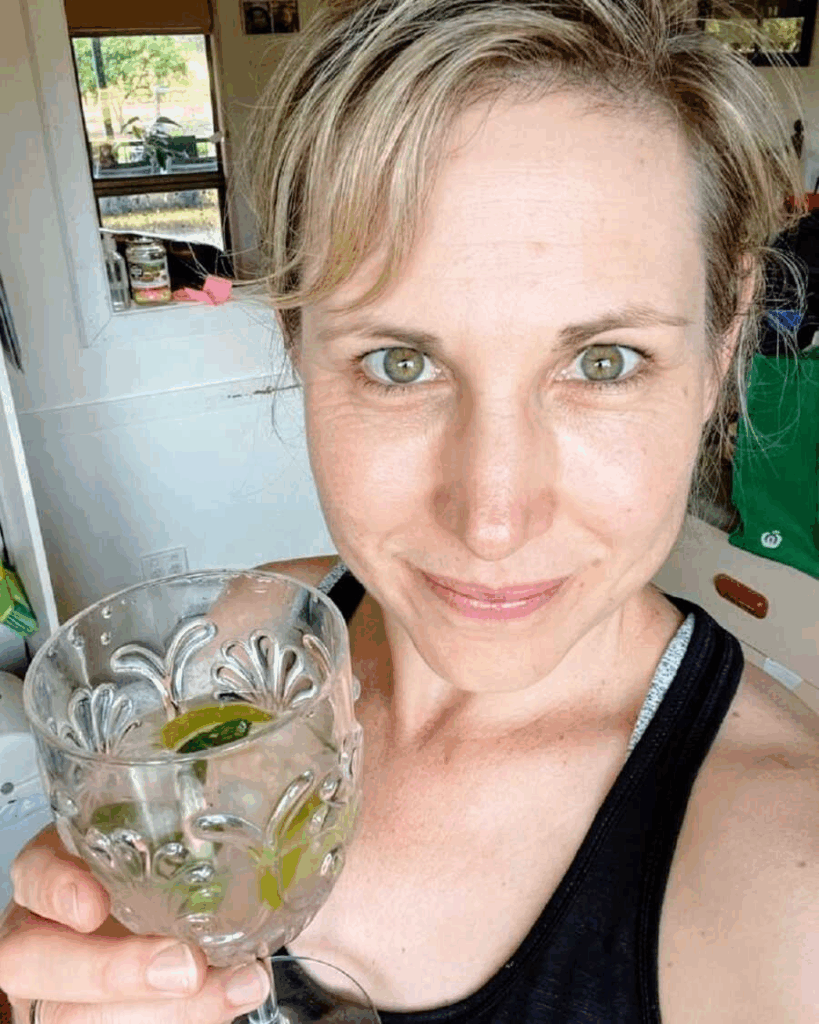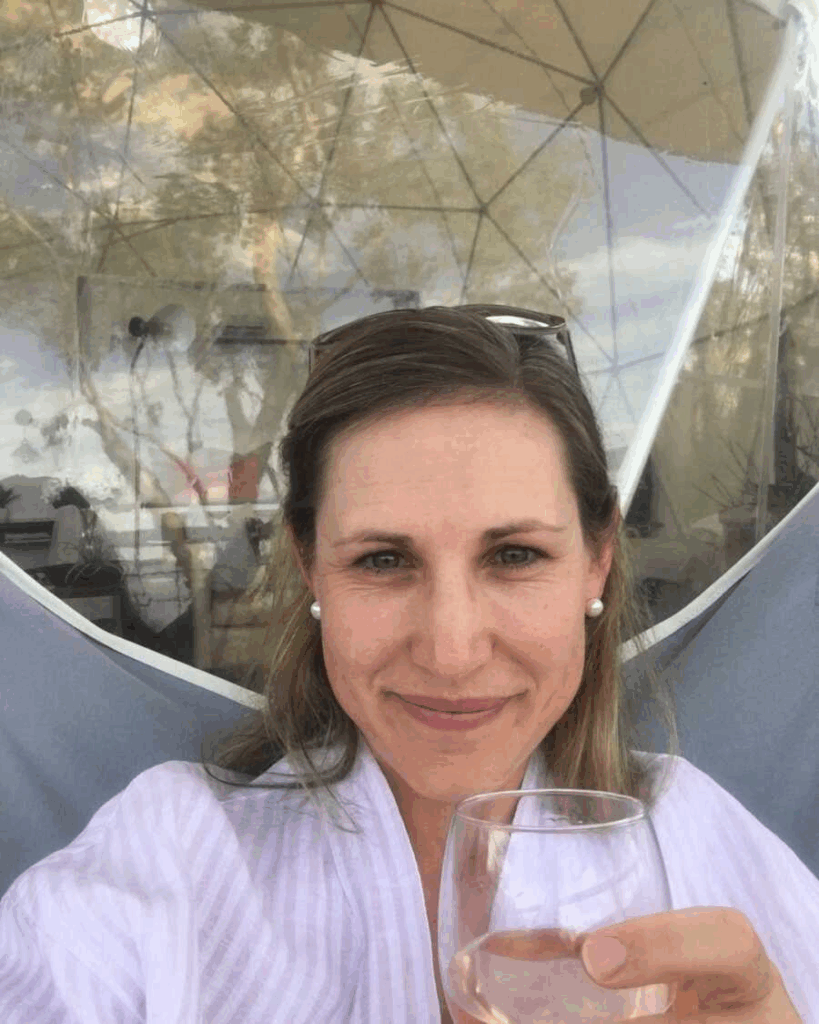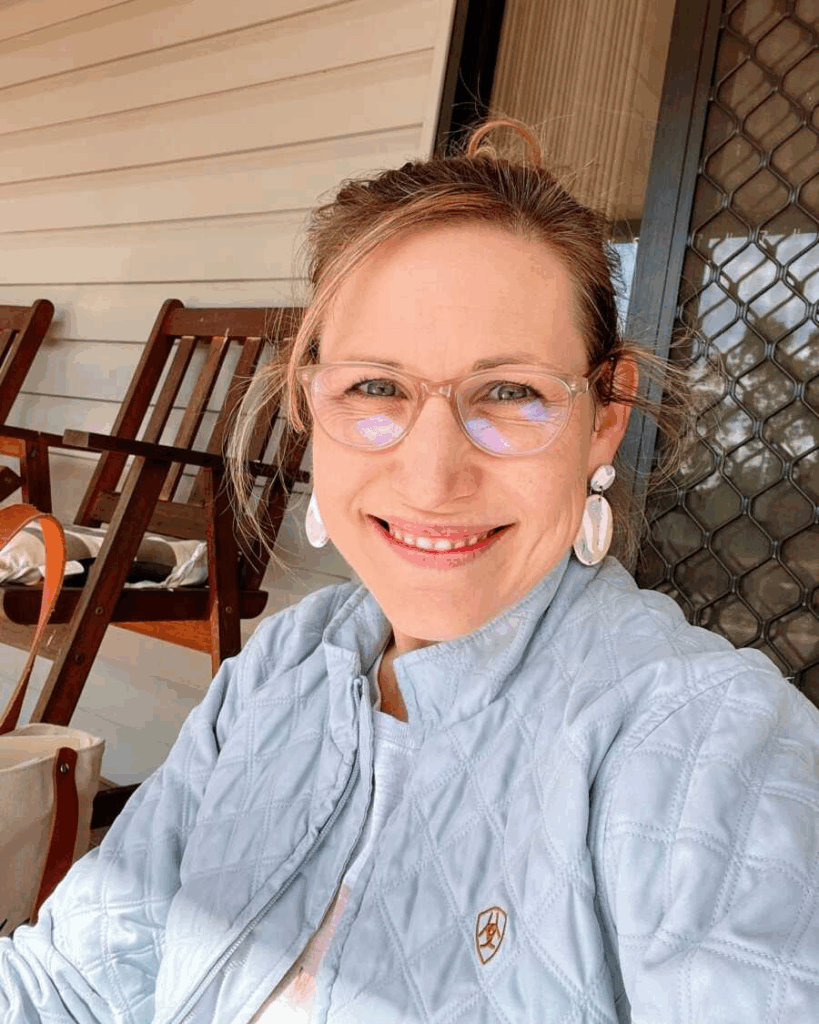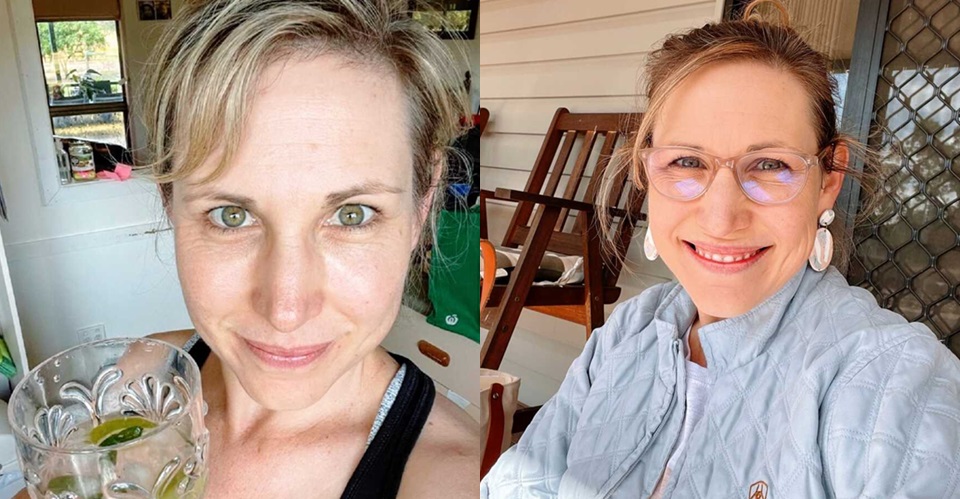She thought she needed wine to unwind, but she needed her steady self, which was the sweetest relief of all. She wants to start with care. This story might be complicated for some people to read. She isn’t a specialist and isn’t telling anyone what to do. She’s not against having a drink. She’s simply sharing what helped her, in case it helps another mother who feels like she once did.
Her work is about helping mothers thrive. Letting go of “wine o’clock” became part of that for her. She noticed how the jokes and memes about moms and wine can hide something more profound for those using alcohol to cope at the end of a hard day. On Christmas morning in 2021, driving to her parents’ place, something settled inside her. She told herself, quietly telling Adam in the passenger seat too, that this would be her last drink for a year, maybe forever. It didn’t come out of nowhere.

She had wanted the courage to draw that line for nearly two years, and thirty dry days had always felt long. But that morning, she felt relief, even pride. This felt right. It felt firm. Alcohol had followed her through life in small, ordinary ways. As a teen, it was “cool.” At university, it was expected. After work, it was what you did. In motherhood, “wine o’clock” was almost a fashion.
Ads and social norms kept repeating the same message: drink to relax, celebrate, forget, fit in. She believes many people can enjoy alcohol in moderation. Some can’t. She had to be honest about which group she was in. From 2013 to 2019, she was pregnant or breastfeeding, and she liked having alcohol off the table. She thought she’d miss it more than she did. Later, she tried 30-day breaks during health kicks and felt better, lighter, clearer. But when the “kick” ended, wine o’clock grew louder.
Stress poured gasoline on the habit: lockdowns, farm peak seasons, drought, parenting overwhelm, pushing herself too hard. One glass easily became more. She told herself another would help. It didn’t. Sometimes, she didn’t tell herself anything at all; it was simply what happened at 5 p.m. She didn’t like the restless sleep, the foggy mornings, and the dip in mood. She would stop buying wine, then repurchase it.

By mid-2021, she told Adam she was worried. She wasn’t getting drunk nightly, but it had become a “thing,” and she didn’t feel okay with that. Around then, she discovered Sober in the Country, a rural Australian charity that makes it #OK2SAYNO. Hearing real stories from people like Shanna Whan opened her eyes and made sobriety seem possible. She felt the pull but wasn’t ready yet.
In August 2021, she tried The Alcohol Experiment by This Naked Mind and even shared her journey on Instagram. The program helps you understand why you drink and how to take back your choices. On Day 1, the lightbulb switched on: start with beliefs. Why do I drink? What do I think alcohol gives me? She coaches others to examine beliefs in other parts of life, yet she hadn’t done it here.
Each day brought a lesson: why willpower burns out like a battery, how stress drains your decision-making energy by evening, how self-talk and the subconscious shape habits. If your conscious and subconscious both agree you don’t want or need a drink, there’s no fight left to have. She began changing the story she told herself about alcohol, and with it, her desire.

After the 30 days, she didn’t quit completely, but the break helped. Then a rough season hit. Without noticing, she used drinking and food to numb hard feelings. The afternoon debates in her head began: to drink or not, and how much. She set rules and broke them: only one glass, only weekends, not while cooking, okay, just while cooking, no red, only Wednesdays. The broken promises hurt more than the hangovers. On Christmas Day, she chose the more straightforward path: stop altogether.
She hasn’t had a drink since. It hasn’t always been easy. She’s missed it at times. But the wins stack up. She goes to bed clear-headed and sleeps better. Her mornings are clean. Her mind isn’t fighting itself at 5 p.m. She drinks water and cares for her health; her waistband thanks her. She can drive her family safely at any hour. She’s spending wine money on better things. Most of all, the quiet is back inside her.
She doesn’t know if this is for a year or for life. For now, alcohol-free feels different, sometimes awkward, but better. She respects everyone’s choices and safe, responsible drinking. She knows that “wine o’clock” can creep from habit to problem. If that’s happening for you, it might be time to pause, get honest, and reach out. There are good resources out there. She’s not an addiction professional, but she’s happy to listen. You don’t have to sit with wine o’clock alone. You are not alone.











